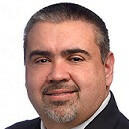After EMS: Magic Money
Editor’s Note: This article is the third in an ongoing series from Mike Rubin. In this series, he’ll reflect on his career and share practical retirement advice for emergency medical personnel.
Welcome back to the most candid, least conventional EMS column about retirement. Reading it wouldn’t be the worst use of your time—you’ll retire, too, eventually. Better to be prepared for the sameness of days, the absence of purpose, the jealousy you’ll feel toward house pets with agendas…
Hey, I’m kidding, mostly. Retirement isn’t all soul-crushing. Using repurposed drug math, I can show that at least 6.57% of end-stage unemployment doesn’t suck. I’m talking about 24 days a year I actually enjoy. How? Why? Keep reading, and you’ll learn something of great value that doesn’t involve drip rates.
Uncle Sam to the Rescue…For Now
On the third Wednesday morning of each month, as The Lovely Helen and I sip coffee and commiserate about age-related indignities, Helen is sure to ask me, “Did I get it?”
I know exactly what she means: magic money. That’s what she calls her Social Security retirement benefits. She earned them by working for a living, but still feels surprise and much joy when I confirm the cash is in her account.
I feel the same when my magic money appears every fourth Wednesday (different weeks for different birthdays). Being paid without having to commute, wear polished shoes, eat cafeteria food, or placate employers is as good as it gets in our world. And since both of our stipends come from a government agency that used to tax our paychecks, we’re happy to bank their handouts without dwelling on Social Security’s uncertain funding.That’s right, by the time you join Helen and me in retirement, you may not see the same benefits. Instead of qualifying for full payments at 66 as we did, or 67 as my youngest brother will, you may have to wait until 68 or 69, or receive less, or contribute more along the way. It depends on whether both houses of Congress plus a president can agree on how many billions of dollars Social Security may add annually to the national debt.
The same is true of Medicare, another fundamental form of senior assistance. For about $750 a month, Helen and I are covered for almost all life-sustaining care offered by over 99% of U.S. physicians. But that benefit could drop 10% or more within 10 years if lawmakers decide other federal programs take priority.
Magical Thinking
I believe Social Security and Medicare are too popular for major reductions. Is that wishful thinking? Perhaps. Since when has elder care in this country been a priority for the rich and powerful? If you don’t want to end up warehoused like some of your patients, consider these ways to be proactive about finance:
Learn what you can about income taxes, including how they affect magic money (hint: not in a happy way). After big cuts at the IRS, there are fewer service reps waiting for your call.
Postpone collecting Social Security. That sounds illogical, but I get an extra 24% annually for life because I waited three years past my “full retirement age” to claim benefits. I think of it as old-age insurance: less money in my 60s but lots more every year thereafter. You never know how long you’ll need it. Go ahead, bet against me; I’ll be the obnoxious octogenarian who buys your company and makes you call me “Boss of All Bosses.”
Sign up for Medicare on time, whenever that turns out to be. Right now, in 2025, the age is 65. This may change in the future. Typically, open enrollment starts three months before you turn 65 and ends three months after you turn 65. If you miss that deadline, you’ll pay more later.
Explore benefits before you take them. Try these useful tools. They’re wordy but less tedious than an endocrinology review:
- Get What’s Yours by Kotlikoff, Moeller, and Solman: Although this irreverent look at Social Security needs an update, it’s still the best book I’ve seen for retirement novices.
- SSA.gov: This is where you’ll register for Social Security, unless you prefer to do so in person at a grim, short-staffed government office. Do you really want to watch hope drain from the faces of fellow citizens as they realize they’re no match for jaded civil servants?
- Get What’s Yours for Medicare by Philip Moeller: You’ll laugh, you’ll cry, you’ll learn. Mostly, you’ll cry.
- Medicare.gov: This is where you will secure coverage after you’ve read how hard it is.
Magic money has been the best surprise of retirement. I hope my generation figures out how to reserve fair shares for the rest of you.
I don’t have results from last month’s survey yet, but here’s Mike’s Exit Poll #2: What’s your favorite guitar solo?
Feel free to post or email your answer. Even better, be the first to upload a video of you playing your selection, and I’ll send you a copy of a rare record album I produced. It’s rare because not many people bought it.
Mike Rubin is a retired paramedic and the author of Life Support, a collection of EMS stories. Contact Mike at mgr22@prodigy.net.
















